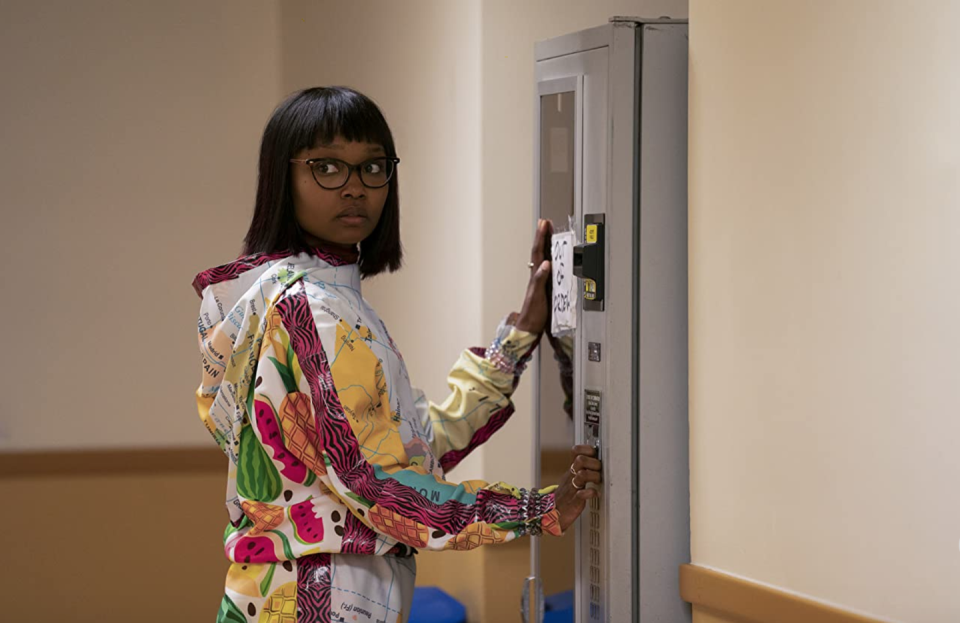What We Know About the Fictional 'Diels Disease' in 'Utopia'

To avoid even the slightest hint of medical misinformation, we will say this: Diels Disease, the degenerative illness that Becky from Amazon’s Utopia suffers from—the disease that gives her seizures, restricts her breathing, and was given to her synthetically—"Diels Disease" is totally, 100%, fake. That particular disease is not real. It doesn’t exist. It hasn’t been manufactured to harm children. Calm down.
One of the issues with Utopia, though not entirely it’s fault, is obviously timing. The series unfolds as a medical conspiracy thriller in which a private corporation introduces a virus in a false flag epidemic and then manipulates the vaccines for further adverse health effects. It’s not exactly the image of virology and vaccine development we need right now, but there it is.
If you’re watching the series and feeling confused about the medical information presented, you’re best off either assuming everything is fictional or hyperbolic. Or just fact checking things yourself.
With Becky's "Diels Disease," while the source and nomenclature of the illness is fake, there are some real world inspirations for the symptoms. But, again, there is no "Diels Disease."

What would Diels Disease be if it were real?
Diels could be a neuromuscular disorder like ALS, a disease that targets the nerves responsible for muscle movement. Though, many of these disorders don’t include the recurrent seizures we see Becky suffering from.
One likely real-world equivalent to Diels is spinal muscular atrophy with progressive myoclonic epilepsy (SMA-PME). This is a neurological condition which can cause recurrent seizures and spasms, including muscle rigidity and convulsions. Those with SMA-PME also have a shortened lifespan. Patients with SMA-PME can die of respiratory failure, so it might not be too unrealistic that Becky almost met the same fate. (Though, after Becky’s kitchen funnel tracheotomy, it’s probably not a good idea to stand up without covering and applying pressure to the neck. Or talking. Or yelling.)
SMA-PME is, however, a rare disease. The seizures would also likely develop after years of atrophy and muscle degeneration.
A more common condition (of which SMA-PME is related) is spinal muscular atrophy (SMA), a group of disorders which causes muscle degeneration (though not necessarily seizures). SMA affects between 1 in 6,000 and 1 in 10,000 people.
For more information on SMA, including resources and ways to donate to research, visit curesma.com.
You Might Also Like

